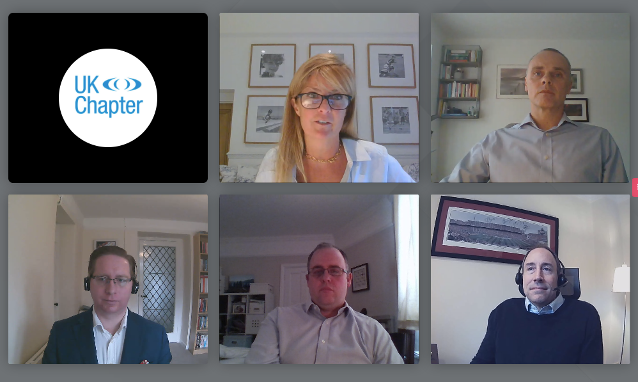CoreNet UK’s CRE Predictions and Resolutions debate is always a hotly anticipated event but none more so than in such an unpredictable year. A record 299 delegates signed up to the session this morning to hear UK chapter president Christina Sigliano introduce this year’s facilitator David Rea, chief economist EMEA at JLL.
Three key themes
While acknowledging that economic outlook is heavily dependent on the course of the pandemic, Rea saw a definite glimmer of light at the end of the tunnel. Despite that, he said that the short term outlook was much more uncertain than the long-term one which is unusual. Rea outlined three themes for this year:
- A gradual reopening of the economy with mass vaccination leading to an improved outlook as the year progresses
- A negative legacy from the pandemic including rising unemployment, debt levels and business insolvency; tax increases and spending cuts; higher corporate tax burden resulting in lower profitability and investment; and greater inequality in both household and business outcomes
- A wide variation in the speed of recovery across different business sectors and geographies
5 CRE predictions for 2021
While acknowledging that few countries will achieve their pre-pandemic economic levels in 2021, he made five predictions:
- There will be no one-size-fits-all rebound across EMEA. The UK managed the pandemic poorly compared to some of its European counterparts and will therefore take longer to recover
- Governments that can will seek a third way between austerity and tax hikes
- Sustainability will take centre stage as policy agendas turn green – green investment creates jobs
- Interest rates will remain low effectively forever; inflation has been banished – but not for good
- Many behavioural changes (e-commerce, home-working, commuting) will stick; eventually they will become the norm
An opportunity for CRE

Adam Hoy, VP head of worldwide real estate and facilities at GSK, sat on the same panel last year. Back then he predicted a change in how shared services will be delivered, and an increase in flex space while resolving to do the CRE basics brilliantly. He also resolved to spend more time impacting the organisation’s top line and demonstrating CRE’s impact to the board. Arguably Hoy could have said to have been fairly accurate. The popularity of flex space has increased in 2020 as a result of the pandemic, and boards are now more aware of the importance of CRE and the workplace than ever before.
Covid is an opportunity in the corporate real estate sense, Hoy said. “It has advanced our ability to demonstrate different types of hybrid working situations and fast-tracked thinking, it’s been a cultural accelerant.” He predicted that people will come back to the workplace and companies will largely adopt a hybrid model where they have flexibility to work in different spaces, including the main office. “The workplace is part of the mission they signed up for when they came to work at a company.” Smart use of space will become a competitive advantage for organisations, he added.
Building on his resolutions last year, Hoy said he would the use the opportunity that Covid had given, where he’s interacted with a variety of different executives within the business – to elevate the importance of real estate. Focusing on a softer, but equally important area, he vowed to continue to focus on building resilient teams, where people take the time to check in on one another and ensure everyone is in a good place.
Flexible working
The focus on people was a theme taken up by Paul Crayford, real estate director EMEA at Aon. This year will see an evolution in working patterns with flexibility becoming a permanent change not an early response to the pandemic, he said. “There is a big difference between allowing remote working and adopting it as a policy.”
Crayford, who has worked remotely for many years, predicted that the focus on flexible working patterns, even post-pandemic, would see more crossover between the HR and CRE teams. “There is no other outcome for those who want to embed remote working as a reality. HR has often been the missing link and that will change, the symbiotic relationship will become more evident.” Alongside this would be new job titles such as director of remote working to knit the key elements together, he predicted. Crayford concluded by resolving to be open to the next wave of change and to “be in full listening mode to our clients.”
The landlord’s perspective
Finally it was down to Mark Tyson, head of property operations at Legal and General Investment Management to share the landlord’s perspective. “The sub-standard office is dead,” he said predicting that the days of picking an office on cost alone is gone. Tyson argued that forward-thinking landlords will develop good reputations for buildings which support people’s productivity and wellbeing.
“The current focus on issues like air quality is a gift for our industry,” he said. “We have the chance to take away those things which make people unsuccessful at work – poor air quality, bad light, too much noise. I believe our industry will embrace that and start to create its own metrics in those areas – before legislation does so.” He broached the idea of property passports and building MOTs with one audience member asking if this could be an EPC for air quality.
Last year’s economist quoted fellow economist Ken Galbraith in his concluding remarks. “When it comes to people who predict, there are those who know, and those who know that they don’t know.” That advice seems even more relevant this year and only time will tell which of today’s panellists fall into which camp.
Want to share your CRE predictions and resolutions? Get in touch or find us on Twitter @MagentaComms.









